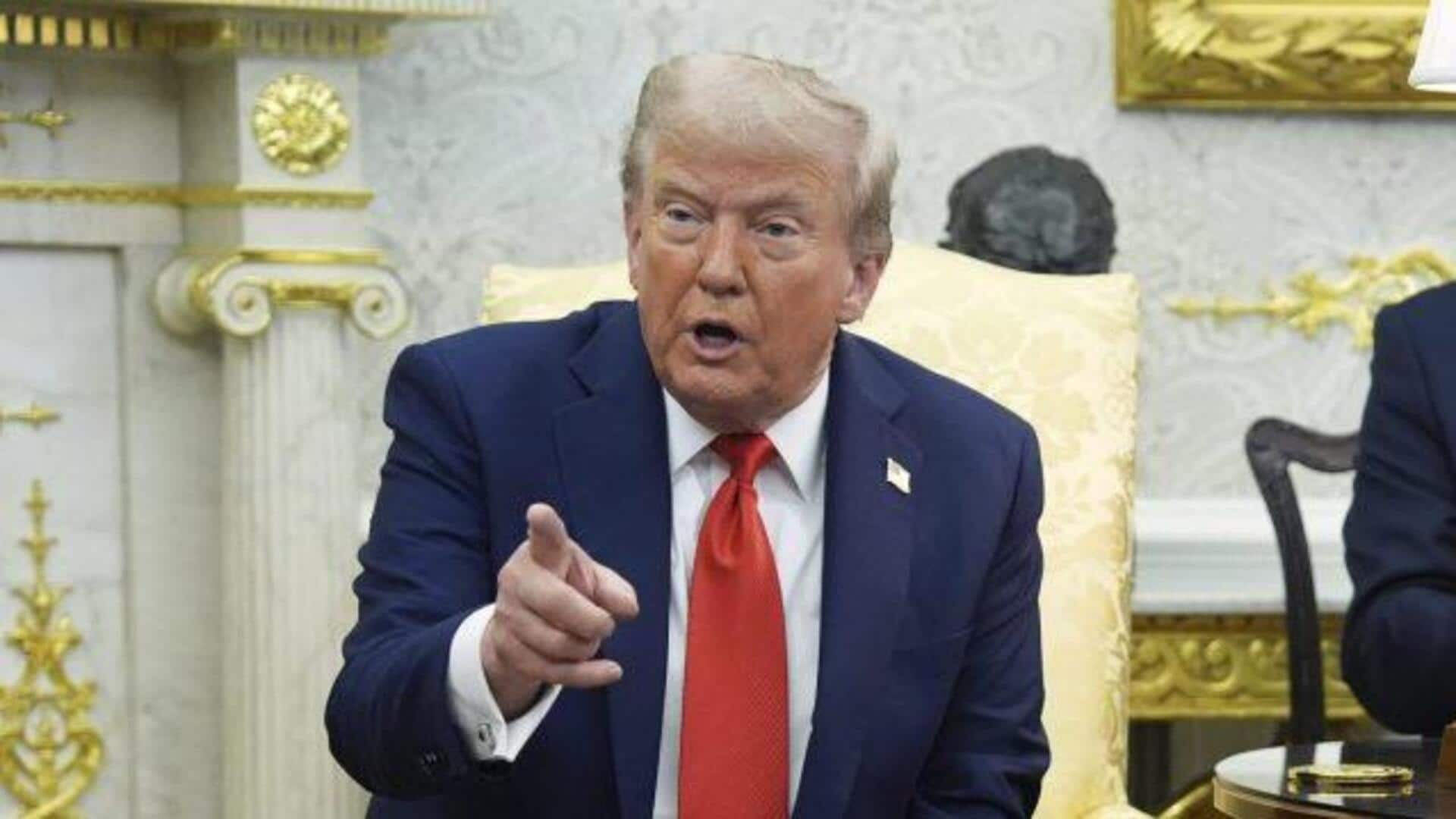
'Why no action against Russia?' Trump asked; he cites India
What's the story
United States President Donald Trump has defended his administration's decision to impose secondary sanctions on India for its continued purchase of Russian oil. The sanctions, which came into effect on August 27, have doubled duties on Indian goods to 50%. According to Trump, these measures have already cost Russia "hundreds of billions of dollars." He also warned that further sanctions could be imposed if India continues its current course.
Meeting remarks
Trump responds to Polish reporter's question
Trump made these statements when a Polish reporter asked him why he seemed frustrated with Russian President Vladimir Putin but took no action. "How do you know there's no action? Would you say that putting secondary sanctions on India, the largest purchaser outside of China, they're almost equal, would you say there was no action? That cost hundreds of billions of dollars to Russia. You call that no action? Trump shot back.
Job suggestion
'Phase 2,' 'phase 3' sanctions possible: Trump
Trump also warned that "phase two" and "phase three" sanctions are still on the table. He said he had already warned India about the consequences of its actions. "Two weeks ago, I said, if India buys, India's got big problems," Trump said. On Monday, Trump claimed that India has now offered to cut their tariffs to nothing, "but it's getting late." He repeated the same claims again on Tuesday, while calling India the "most tariffed nation" in the world.
Sourcing defense
India warns US tariffs could hurt strategic partnership
India has defended its oil sourcing decisions as driven by affordability and supply security, not political considerations. The country has warned that US tariffs could hurt a critical strategic partnership. Indian Prime Minister Narendra Modi said domestic priorities would not be compromised under external pressure, stating, "Pressure on us may increase, but we will bear it." The US has imposed a 25% reciprocal tariff on Indian exports and an additional 25% levy linked to oil imports from Russia.